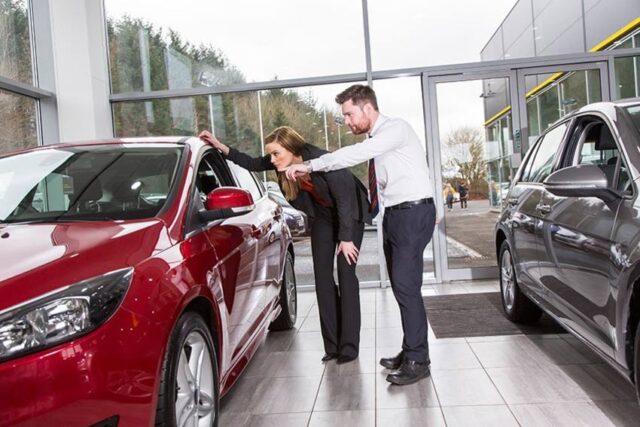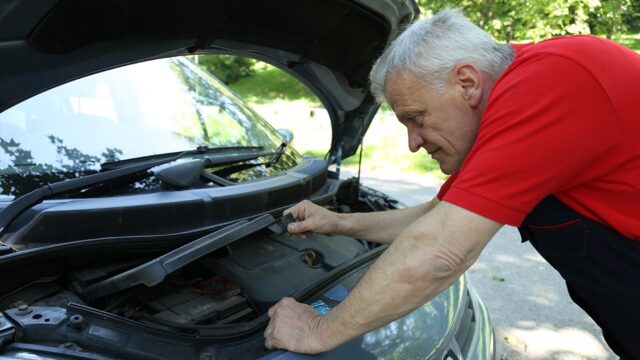It is not always easy to determine how much money your used car is valued; hence, the valuation depends on multiple factors. If the reason for your valuation is the sale of the vehicle, there are certain things to consider before putting an add on or trading your car in. If you are the first owner of the car, then you have probably been familiar with all the pros and cons of your vehicle, so the price tagging should come as a bit easier task than if you are about to sell an already used car that had who knows how many owners before you.
Since you are trying to get some money out of your car transaction, knowing how much to ask for a used car is the number one priority to meet. Namely, underpricing your ride will leave you with a hole in your pocket, but the whole process should probably last significantly shorter in comparison to selling a regularly priced car. On the other hand, not only will you wait for a long time to sell a car with overpriced value, but the real question is whether you are going to have any customers whatsoever.
Apart from forming a price that would both suit your customer and yourself, the thing important to worry about is whether you are going to sell your car on your own, or you consider trading in the vehicle as a possible option. Namely, trading in requires far less dedication to the selling itself, but that feature comes with a price. On the other hand, selling your vehicle on your own can get you more money, whereas it is much more time consuming and you are the only chief in charge of responsibility to organize everything.
Whether you are selling or you want to trade your car in, you need to determine your used car’s valuation in order to form a reasonable price. It is in your best interest to do the thing adequately, so you could make the most of the selling and earn some cash. In order to make that possible and also to suggest to you what steps to follow when determining the true value of your used vehicle, we have prepared the following list for you to take into consideration.
1. Assessing the True Condition of Your Ride

The first step and probably the biggest price affecting factor when it comes to determining your used car value is the condition in which it currently is. Namely, there are cars of the same type, characteristics, and age, even with similar serial numbers, but with utterly different values. The factors affecting the price are multiple and imply things such are the exterior, the interior, and the condition under the hood. Whether they are taken into consideration when forming a price separately or individually, they are a vital part of the assessment.
2. The Exterior

When it comes to the exterior, it mainly means the overall looks on the outside of your vehicle. Start thinking like a potential customer and think about what would you look for. Surely, the appearance of the body is of utter importance. That implies the existence of scratches, rust, and dents. The condition of the glassware is also important so you should pay special attention to the window glass.
If there are any possible irregularities, you should consider fixing them because they affect the price noticeably. When you finish with the windows, focus on the lights and the tires, and last but not least do try the wipers and see if they function correctly. If you tend to do things more contemporary and without troubling yourself too much, there are ways to even do all of the aforementioned online, so to check how it’s done visit cashyourcaruae.com
3. The Interior

When we talk about the inside of your car, the things you want to make sure if they are in good shape are the air conditioning and the heating system. After that, the speakers and the entertainment platform. These four belong to the additional features so making sure they function will add to your car value. If not, make sure to do what you can about that since if they do not work it will affect the price. Stains and crumbs are your arch enemies, so eliminate them before the potential buyer sees them. Another thing worth mentioning is the functioning of seat belts and their part in forming the price. Shortly, fix anything you can, because it will cost you less than not to be paid the price you want in the end, because of a few dysfunctional items.
4. The Condition Under the Hood

This is where the heart of your ride resides. Namely, checking the wellbeing of your engine and the tanks for rust and potential leakage is crucial. Afterward, see the oil levels and change it if necessary. You should not smell anything unusual, and if there is an essence of a burning sensation in the air around your engine, consider replacing the fluids. Thinking about using the services of a car detailing company can prove useful if you do not want to get your hands dirty.
5. The Mileage

This is the year indicator of your wheels. Namely, there is a life expectancy for every car and this is where it says how old it is. Joke aside, the counter in your car shows how many miles your car has behind it and, combining that with previously mentioned factors can serve as a material for predicting how long can it run ahead. The more miles covered, the lower the price. Although resetting the counter is a criminal act done by individuals to raise the value of their rides, doing this is not recommended under any circumstances.
Not only will the aforementioned things help you to determine the realistic value of your vehicle, but you will be able to raise and lower the price according to your wants and needs. Whether you want to trade it in or sell it yourself, knowing where to focus your attention on will make certain things easier. When you know what your car is really worth, you can easily manipulate the price and form the cost as you find it optimal. Hopefully, you will find an adequate customer willing to pay for it, and then both parties will go home satisfied with big smiles on their heads.







